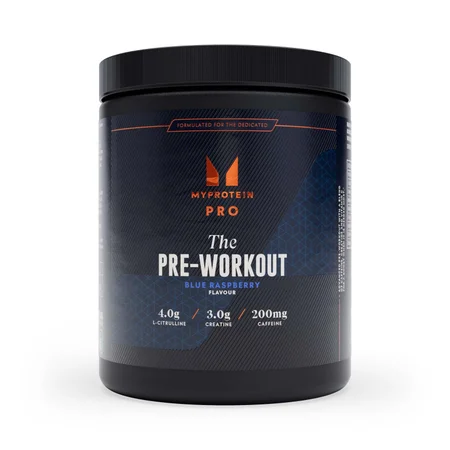Exercises To Boost Your Energy

In logical terms exercise is linked to using energy. But raising your output can actually lift your energy levels in general.
Let’s dive in to how and why.
How can exercise boost your energy?
There are a number of ways and reasons you might be feeling low on energy or low in mood. Everyone is different here, but exercise has been shown to have such a positive effect on both energy levels and mood.
This has been shown in both acute changes (from a single session) as well as chronic (from changing lifestyle from less active to increasing activity levels).
Why do I have low energy?
Low energy can come from a number of reasons, part of which can be to do with physiological reasons such as metabolism of stored energy, decreases of blood sugar, lack of oxygen to the brain and muscles, and decreases in serotonin and dopamine in the brain.
You can address each of these with exercise in a range of forms from higher intensity to low intensity relaxation and meditation.
One big reason for low energy is overstimulation.
So much of our daily lives are linked to stress, including lifestyle choices like caffeine that ramp your body into high energy feelings.
Your body needs time to unwind and relax as well so that it can ramp itself up to a higher level.
This doesn’t have to follow your regular programme, it could be a complete break from the normal and you might adapt or change your workout to suit you and how you feel at that time. However, it might be just powering through your planned session and feeling revitalised by completing it.
Which exercises gives you the most energy?
In terms of hormonal increases and physiological changes, endurance exercise is quite well known for releasing endorphins that not only combat low moods, it can also give you the feelings of high energy levels.
‘Runner’s high’ is a stellar example of this, where runners or endurance athletes feel like they can just keep going and take on the world.
However, resistance training has also been shown to have a great effect on energy levels from a single session.
This occurred in both low intensity and high intensity training, although this has mainly been researched in less trained participants, so there may be a different effect in well trained individuals.
There also could be a positive effect from a high intensity short duration workout (less than 20 mins) meaning you may know you have less time to really push yourself.
Best exercises to boost your energy levels
Try some of the techniques and ideas below if you are feeling a little low on energy to get a boost from the session and still work towards a positive goal.
Pyramid sets
This technique can be used for any exercise and is great for strength training. With pyramid sets you add weight to each set and cut reps, meaning you’re not going to have to gear yourself up to continually push.
Set your exercise up for 8 reps, then add some weight and do 6 reps, then 4 and you can finish with 2.
Each set can have a bit more rest between and you can do these all around 8 RPE meaning you should have at least 1-2 more reps in the tank. It will ramp you up and lifting big can help to boost your energy.
Interval training
This could be a way round a cardio workout.
If you’re struggling with energy to get through a long session, you can up the anti by setting short periods (less than one minute) of high intensity straight into a period of the same length of rest or very low intensity.
This can be done in 20 mins to replace a 1 hour continuous session.
Lower weight higher volume
In a similar way to interval training, dropping your regular weight can get the blood flowing, but avoiding complete fatigue can start to lift your energy levels and deliver a lot from your workouts.
You’ll need to take less rest between sets to drive you forward, but the blood flow and the pump in the muscles can cause a huge lift in mood and energy.
High weight, lower volume
By increasing the weight and decreasing the reps to 6 or less, you get a bit more time to rest (up to 5 mins).
You’ll get the time to spend on you and being mindful of how you’re feeling as well as what you can put into your next set.
Yoga
If you’re suffering from mental overstimulation and a constant over stimulated and overstressed state, yoga can be an amazing way to reset and focus on yourself.
Be aware of the different types of yoga and fine one to suit yourself, but the key thing to look for would be a mindful or meditation style session that will help you to slow down your body using your parasympathetic nervous system.
This can help to reverse the continuous stresses your body and mind go through on a daily basis.
Classes
When you feel too out of energy to think about your session and what you need to do next, classes take that need away and give that responsibility to the instructor whose job is to motivate you and pump you up to keep moving.
Changing to isolation exercises
If you’re running low on energy, stop and have a think about what you really don’t want to do.
We know that compound lifts can be the best exercises, but if there’s something you’re really not looking forward to (lunges sometimes spring to mind with a high mental and coordination load) split it to leg extensions, hip thrusts and adductions.
Personally, my low energy workout consists of a longer warm up time to give the blood time to get round the body and wake me up. Then focussing on upper body (that I find a little easier).
- 10 min bike, very gradual warm up
- 10 min mobilisation and core
- 10 min intervals on the treadmill
- 20 min weight training (squats and upper body)
- 5 min cool down
If you’re not sure what you could be doing, make sure you head to a PT to ask for some more advice and some recommendations about how to combat fatigue and how to increase your energy levels.
How do I fight fatigue at the gym?
Using the research above, the longer rest periods seem to have a positive effect, as well as the lower intensity of lifting.
Therefore, if you’re going in to weight train, advice would suggest having a longer warm up with additional warm up sets and keep your rest periods on the longer side, or reducing the weight lifted on more endurance based weight training sessions.
In addition to structuring your workouts, there are a couple of ways of boosting your workouts:
1. Holding yourself accountable
Get a gym buddy, a PT, or tell a family member what you’re looking to achieve. The gym buddy can help to push you as well as get you psyched while giving them a boost. The accountability from a PT or family or friend can give you a big reason why and help to mentally focus you.
2. Music
This is one of the biggest ergogenic aids for training and has been shown to boost energy levels and mood. The best music to chose is usually one that will have an emotive response as well as being distracting from the grind of exercise, so if you’re listening to Michael Bublé or Pendulum, they can all have the positive effect.
3. Caffeine and pre-workouts
This can give you a huge energy boost and caffeine is one of the most researched and positively effective supplements for energy levels. If you’re training late from the afternoon and don’t want caffeine, Taurine can also give you the same mental focus without keeping you up into the night or giving you a caffeine crash if you are a high responder.
4. Or Try THE Pump.
Give yourself a proper warm up and stretch Finally, this is an underrated method, but a good warm up is not only of physical benefit, but can also give a big psychological benefit. Using a bit of time to stretch, foam roll and get the blood gradually flowing around your body can give you the time to prepare for training and lift your energy levels as you focus your reason for being there.
Should you work out when fatigued?
You may have heard the phrase ‘the only bad workout is one that never happened’. However, sometimes you need to listen to your body and work on your recovery.
This is not just a physical thing, but linked to all forms of stress, mental as well. Sometimes you just need one session postponed to give you the chance to have a great workout next time.
If you’re consistently feeling like that though, you should have a look at your workout plan and your lifestyle to see if they fit in with each other or if you need to make some changes to make the most of your exercise opportunities.
You might also need to look at your goals and the aims of your workouts. If in doubt, that’s where a PT can come in to help you to balance things and can also help to motivate and energise you.
Having said that, fatigue is something you are likely to come up against, especially when training and working hard towards a goal.
Sometimes you need to have a look at what you are going to train and why, and making the decision that you are not going to compromise and give yourself a little talking to, making sure you are going to get something from the session and making the most of your training time.
Take home message
At the end of the day, you need to think about the aim of your workout and if you are going to be able to get what you want from it.
Try some of the listed techniques if you’re feeling low and remember to be kind to your body and the long term effects are more important than a single session. If missing or adapting one session means you are going to get a better long term effect, do it.
No one got lean or massive from a single workout, so consider your options. Make sure if you’re struggling regularly, seek the help of a PT or a medical professional

Simon started his fitness journey from a young age, and was playing sport as soon as he could roll a ball. This pushed him to compete in a variety of sports from rugby to squash.
After completing an MSc in Strength & Conditioning, alongside a PT qualification, he gained an academic role at the University of Chester. From lecturing to research-based studies, his applied role caters to both team and individual sports.
References:
- Boolani, A., O’Connor, P., Reid, J., Ma, S. & Mondal, S. (2019) Predictors of feelings of energy differ from predictors of fatigue. Fatigue: Biomedicine, Health & Behavior. 7(1), 12-28.
- Crush, E., Frith, E. & Loprinzi, P. (2018). Experimental effects of acute exercise duration and exercise recovery on mood state. Journal of Affective Disorders. 229, 282-287.
- Glaister, M., & Gissane, C. (2018). Caffeine and physiological responses to submaximal exercise: a meta-analysis. International journal of sports physiology and performance, 13(4), 402-411.
- Herring, M. P., & O’Connor, P. J. (2009). The effect of acute resistance exercise on feelings of energy and fatigue. Journal of Sports Sciences, 27(7), 701-709.
- Hicks, S. D., Jacob, P., Perez, O., Baffuto, M., Gagnon, Z., & Middleton, F. A. (2019). The transcriptional signature of a runner’s high. Medicine & Science in Sports & Exercise, 51(5), 970-978.
- Loy, B., O’Connor, P. & Dishman, R. (2013). The effect of a single bout of exercise on energy and fatigue states: a systematic review and meta-analysis. Fatigue: Biomedicine, Health & Behaviour. 1 (4).
- Meeusen, R., Watson, P., Hasegawa, H., Roelands, B. & Piacentini, M. (2006). Central Fatigue: The Serotonin Hypothesis and Beyond. Sports Medicine. 36 (10), 881-909.
- Moss, S., Enright, K. & Cushman, S. (2018). The influence of music genre on explosive power, repetitions to failure and mood responses during resistance exercise. Psychology of Sport and Exercise. 37, 128-138.
- Shellock, F. G. (1986). Research applications: physiological, psychological, and injury prevention aspects of warm-up. Strength & Conditioning Journal, 8(5), 24-27.
- Waldron, M., Patterson, S. D., Tallent, J., & Jeffries, O. (2018). The effects of an oral taurine dose and supplementation period on endurance exercise performance in humans: a meta-analysis. Sports Medicine, 48, 1247-1253.














